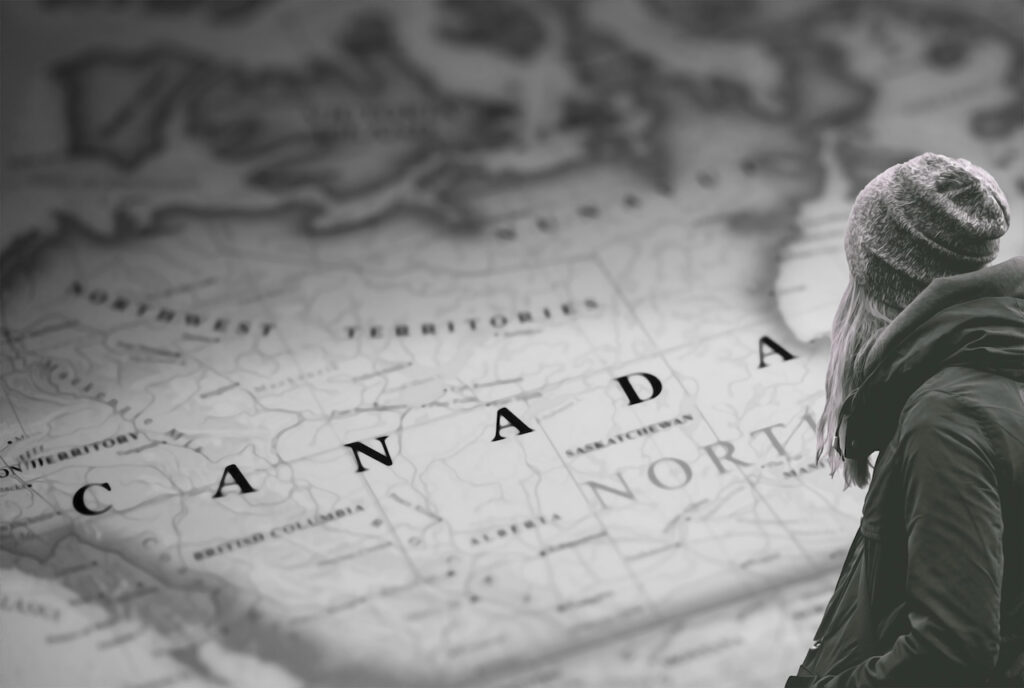Even with successful careers, many professional millennials are finding fewer reasons to stay in the country. Here’s why.
As of September 2021, the number of Overseas Filipino Workers (OFWs) was at an estimated 1.83 million. To call their contribution to the county’s economy significant is an understatement. Last year alone, personal remittances increased to a high of $34.88 billion, while cash remittances hit a new record at $31.42 billion.
While most of us associate OFWs with blue-collar workers or healthcare professionals, the demographics are far wider than that. Some Filipinos, for instance, make the difficult, life-changing decision to leave the motherland and their loved ones behind, despite having thriving careers at prestigious institutions.
In the Philippines, why are we making heroes out of people who offer up their lives to companies who don’t really care about them?
White-collar migration in the Philippine context is not a new phenomenon. With the country’s large pool of highly educated and highly skilled individuals vis-à-vis the lack of local opportunities for professional and financial growth, it comes as no surprise that, for the past several decades, this group of professionals have been moving abroad for better compensation and improved quality of life.
The Philippine Statistics Authority (PSA) and the Overseas Workers Welfare Administration (OWWA) do not have the exact figures of white-collar OFWs. In a 2021 survey on OFWs conducted by the PSA, however, it was revealed that of the 1.83 million registered OFWs in that year, four out of 10 or 43.2% are engaged in “elementary occupations,” or those that “involve the performance of simple and routine tasks which may require the use of hand-held tools and considerable physical effort.” Those involved in service and sales are at 16.5%, while plant and machine operators and assemblers are at 13.6%.

This leaves the remaining 26.7% or 488,610—still a staggering number—doing other occupations including white-collar jobs such as those in academe, healthcare sector, technology, finance, administration, and law.
With the soaring prices of basic commodities (a kilo of rice is now pushing P60), the almost weekly oil price hikes, soul-draining traffic jams, abysmal daily commute, abusive government officials, blatant corruption, impunity, and many other socio-political issues plaguing the ordinary Juan, more and more millennials and even Gen Zs are finding fewer reasons to stay.
The POST talked to two young and successful professional millennials who recently moved out of the country in search not only of a better paying job but also, and perhaps more importantly, of a higher quality of life. Here are their stories.
Jovi Figueroa (Australia)
Marketing and communications coordinator

Jovi had a promising career in media straight out of college. “For the last four to five years, I worked as a freelance writer and editor. Writing, editing, proofreading, and even a bit of graphic design and video producing, more than 10 hours a day, seven days a week—that was my life as a freelancer,” she shared.
Her whole family migrated to Australia in 2014. “I tried to look for a job and even tried to study again, but it did not work out for me. Maybe I was young then, maybe I was not yet ready, or maybe it just was not my time to be there.”
That being so, it was not a difficult decision when the first company for which she worked offered to fly her back to the Philippines. She agreed and decided to build a life in Manila. The years that followed were very fulfilling for Jovi—but also very toxic.
“When you love what you do, it’s easy to dismiss the fatigue and the stress. You can always find a reason to keep going, to keep pushing. Until, of course, the body cannot keep up with what the mind wants to achieve. I realized that I wanted to lead a more sustainable life. A good career was great, but a less stressful life sounded better.”
This millennial then made the decision to move back to Australia to be with her family.
Hard, painful questions every millennial faces
Jovi now works as a marketing and communications coordinator for a non-profit association in Queensland. She said that working in Australia has made her a much more grateful person.
“It also made me realize how bad we have it back in the Philippines. Now, I have 20 days in a year just for vacation. Legislation is in place to make sure we’re entitled to paid leave when we’re caring for a sick family member, or when we’re suffering from domestic abuse. Overtime is discouraged because everyone is out of the office when their shift ends. Ordinary hours of work are at 38 hours a week,” she shared.
I realized that I wanted to lead a more sustainable life. A good career was great, but a less stressful life sounded better.
It is unfair to compare Australia with the Philippines, “but it’s hard not to,” she lamented.
“It’s so painful to be asking the question: if Australia can treat its citizens right, why can’t the Philippines? We are humans just the same. We have needs just the same. But in the Philippines, why are we making heroes out of people who offer up their lives for companies who don’t really care about them?”
While things have drastically improved for Jovi when it comes to work, she admitted that it can be lonely. She’s missing friends and loved ones back in the Philippines. This is the life of a migrant, an OFW.
Another challenge is racism. “Australia is home to a diverse culture and a plethora of races, but it’s still hard not to stand out when your skin color is different, when your accent is different, and when you understand and see things differently. It feels like I’m always trying to fit in; I’m always trying to prove myself,” she explained.
She also mentioned that it’s not as easy building connections with people because the language and culture barrier is ever present. “But while it can be challenging, I try to look at it as an opportunity to learn new things and see the world from a different perspective.”
“It’s hard to keep fighting for a country that does not fight for you.”
Jovi will go back to the Philippines but only for leisure; she doesn’t see herself coming back for good.
“I can’t imagine raising a child in the Philippines, knowing she will grow up hating her government or fearing for her life when she walks down a quiet street at night. I can’t imagine raising a family on a salary that’s so meager it feels impossible to buy a car or a house. I can’t imagine having to deal with 14.7 million people crammed in a city, where it takes three hours just to drive 20 kilometers from Quezon City to Pasay,” she said.
Australia is home to a diverse culture and a plethora of races, but it’s still hard not to stand out when your skin color is different, when your accent is different, and when you understand and see things differently.
“I will always honor my Filipino roots, and I want my children to be raised with the values and culture we grew up with. But I don’t want her to go through the same gates of hell that I had to go through in the last years in Manila,” Jovi added.
For those thinking of migrating, she has this to say: “I believe that’s a choice you have to make for yourself. You don’t owe anyone who shames you for leaving your country. Because at the end of the day, it’s hard to keep fighting for a country that does not fight for you, that does not value you.”
“To those who have recently migrated, it can be hard at first. But always be grateful, and look towards the future, because the challenges you have now are nothing compared to what you would’ve gone through if you didn’t leave.”
Marti Rodriguez (Canada)
College professor



Before Marti decided to immigrate to Canada with his wife Mikee, he was an assistant professor at the University of the Philippines Diliman, where he taught for six years various subjects related to rhetoric and interpersonal communication.
He admitted that there were a lot of things they considered before migrating. “I was working in UP with fair compensation, benefits, and prestige, and my wife was working in one of the country’s biggest banks enjoying the same. We decided to leave because of equal parts hurt and hope—the challenges with the current socio-political climate in the Philippines and the opportunities offered here in Canada, respectively,” he shared.
A baptism of ice
Eight months in, the millennial couple is still adjusting to the weather and lifestyle in Canada. “We arrived here baptized in ice in the dead of winter, I think it was -22 degrees Celsius. It was our first time setting foot in the West, and first time seeing snow as well! We acclimated after around two months, give or take.”
It’s a lot quieter, people are friendlier, he said, and the systems are unbelievably efficient. “Don’t get me started on good traffic!” he quipped.
Our goal is to enjoy the fruits of our labor while we are still young and healthy, so we definitely see a lot of traveling in our plans. We can see ourselves back in the Philippines only to visit.
Just like Jovi, however, there are also many cultural differences Marti must contend with every day. “The language barrier was also there, even in my work. I’ve found that compartmentalizing your professional and personal life really keeps your mental health in check. It’s nice that the culture also encourages this because once you leave work, you leave it in the office, period,” he explained.
“Always have a back-up plan to your back-up plan.”
Marti is still teaching, this time at a private college, where he teaches over 40 international students for about 30 hours a week.
Five years from now, Marti and Mikee see themselves settled with a house and Canadian citizenship. “Our goal is to enjoy the fruits of our labor while we are still young and healthy, so we definitely see a lot of traveling in our plans. We can see ourselves back in the Philippines only to visit. Oh, and we also want to help many local animal shelters in the PH, as well,” he said.
Thinking of moving abroad? Marti advised to “always have a back-up plan to your back-up plan.” He recommended researching beforehand to avoid getting swept unaware with differences in policies and culture.
He also said to remember why you moved in the first place. “Changes are normal but they are overwhelming to anyone. When you feel like going back, that’s fine, but make sure that your bigger picture is still going to fall into place.”
Lastly, he emphasized the value of making friends and connections. “In a foreign country, who you know can be just as important as what you know. They can help you land your first job, and eventually, meet even more friends!”




